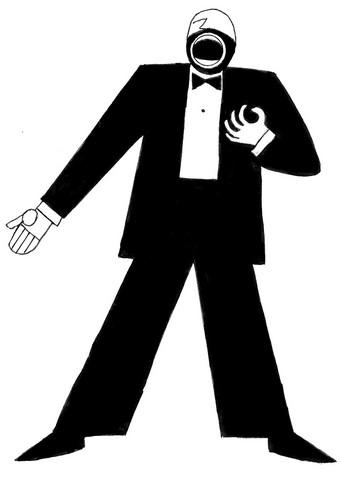Early Music?
A couple recent things have made me think again about issues of early music performance. The first is Sting's recent release of a CD of Dowland lute songs in which he accompanies himself on lute (with a little help from lutenist Edin Karamazov). I applaud Sting's willingness to stretch himself as a musician and have always liked singers who seek to exist "in the cracks" between musical genres. It's also great that a whole legion of Sting fans are finding out just how great Dowland's music is. Sadly, I don't think that Sting's recording can be considered a success. It is true that the original lute song singers (including Dowland himself) were somewhat closer in sound to a rock or folk singer than a Pavarotti-like modern opera singer. The importance of text was paramount, as was communicating the overall emotional character of the song. Still, the Renaissance singer typically had a clear voice and a certain refinement to the vocal sound. In these songs, Sting's voice often sounds dull and the words are somewhat mumbled. The result, to me, sounds like an amateur basement recording by someone who hasn't quite figured out how to sing in this style. Sting should have waited a couple of years, had a few coachings and thought more about communicating this music. You can't simply pick up a lute and expect to be an expert right away. Sorry Sting, it's going to take a bit more work to really do this music justice. Listen to singers who have worked in this idiom for a long time like Mark Padmore, John Potter or Paul Agnew if you want to hear this music come to life.
I recently took part in a concert of Bach vocal music that was unashamedly not a "historical performance". Sometimes performances with modern instruments can be exciting, as performers do not feel stuck in the early music box and a more personal musical response occurs. Historical performance should not be thought of as the only solution to this music. Still, things like massive ritards at the end of each movement, snail-like chorales, thick instrumental and vocal texture, and lack of variation in articulation can make this music muddy and dampen its intricate framework. One can still give a full-blooded modern instrument performance while respecting the structures Bach has imbedded in this music. Many of the major orchestras across the country and in Europe are able to give worthwhile performances of earlier works while still preserving their unique orchestral sound.
This performance got me thinking about the state of early music in Philadelphia. We have two very fine early music instrumental ensembles, Tempesta di Mare and Piffaro but where are the vocal ensembles? There are a few groups who regularly perform early music at varying levels of competency, but for a city this large, it's unbelievable that there is not a renowned group like the Boston Camerata or the New York Collegium. I think there are probably people in Philadelphia hungry for Handel operas, French Baroque music and English and Italian consort music. So where are the performances? I've been contemplating more and more the idea of looking northward for the opportunity to perform this music. I sort of feel stuck in a city where my particular gifts as a singer are underutilised. Do not get me wrong; there are wonderful singers working in Philadelphia. It's just that to me the diversity of performances leaves something to be desired.


3 Comments:
STEVE! I love the sting CD!! I think the performances are really sincere, and very moving-- especially the "white lily" one.
I think, seeing that Dowland was kind of a pop composer of his day, it's kind of appropriate to have the marriage of the old and the new.
oh, and by the way. I LOVE Tempesta di Mare. Do you have their Weiss Lute Concerti CD? The best.
As a former student of John Potter, I hope I can elucidate this passage in 'Vocal Authority'. John does advocate a less-trained voice for early music, similar to the singers he mentions. I think the important part of this statement is "rock rhetoric". Though Sting (perhaps) has the vocal goods for Dowland, I do not feel that he sufficiently removes himself from the vocal persona he has created in the last 30 years. As a result, we get "Sting does Dowland" instead of an artist at the service of the music, like Agnew, etc. I guess it's a matter of taste for me; I just don't really like what Sting does with Dowland. Thanks for your comment!
Post a Comment
<< Home